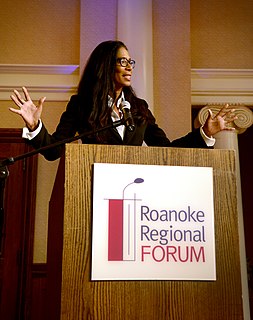A Quote by Ned Lamont
For far too long, women have been undervalued in the workplace for the work they provide compared to their male counterparts that do the same job - something that can be systemically ruinous, unfair and terrible for our workplace.
Related Quotes
It sometimes feels like the workplace is immune from social upheaval. We go to work and do the best we can, and at the end of the day, we return to our lives. We don't abandon who we are, however, when we begin and end our workday. Who we are shapes how we are perceived in the workplace and, in turn, how we perform in the workplace.
Colleges are a unique space in our culture. They're a temporary constellation of humans, like a workplace. And the rules about sexual assault and harassment in a workplace are narrow rules. They're stricter than what's considered criminal on a city street. By this logic, the same rules should exist at universities too.
Women are the majority of immigrants yet the minority of immigrant employment visas; immigrant and native born women who work in the service arena - such as domestic workers - are not valued for their work, making pennies on the dollar compared to male counterparts; and, women are disproportionately affected by family reunification policies.
When I got married and had a child and went to work, my day was all day, all night. You lose your sense of balance. That was in the late '60s, '70s, women went to work, they went crazy. They thought the workplace was much more exciting than the home. They thought the family could wait. And you know what? The family can't wait. And women have now found that out. It all has to do with women, or the homemaker leaving the home and realizing that where they've gone is not as fabulous, or as rewarding, or as self-fulfilling as the balance between the workplace and the home place.
As women, we're presented this false choice that is either our children or our work. But I don't think I fully understood the paradox until I had a child. I bring my son to work and let other parents do the same. I am very intentional about the workplace that I create, and my son is a big part of that.
We cannot ensure that women will be free of discrimination in the workplace and everywhere as long as women are not universally defended under our Constitution. As it stands now, the equal rights of women are subject to interpretation of law. That is a risk our mothers, sisters and daughters cannot afford.
The top stars like Angelina, Cameron (Diaz), Sandra Bullock and probably now Jennifer Lawrence probably gets paid the same as their male counterparts. The problem is the averages. Because there are not enough parts for women to star in and get paid. So when you look at the total amount women make as compared to men it's paltry.

































